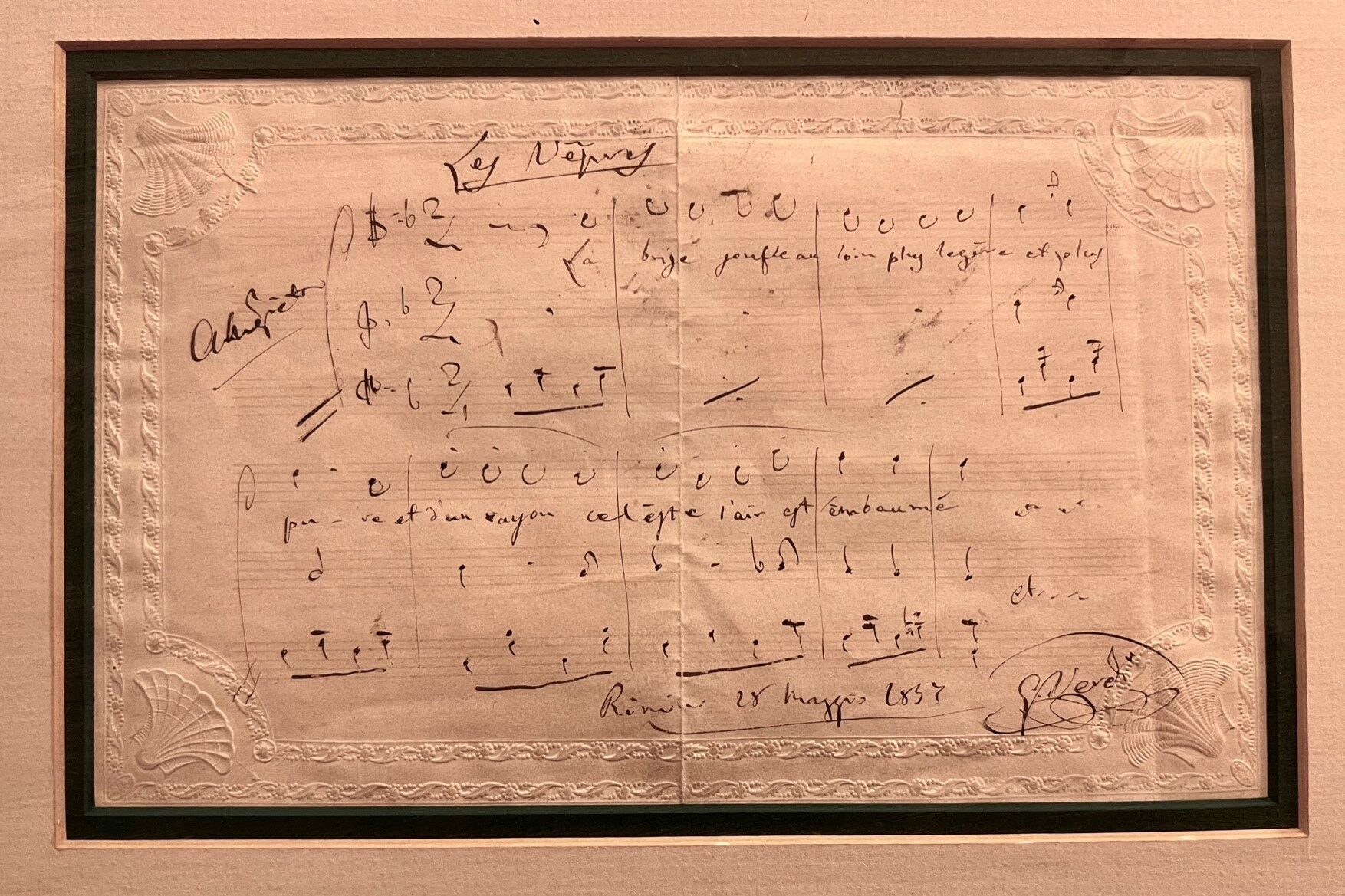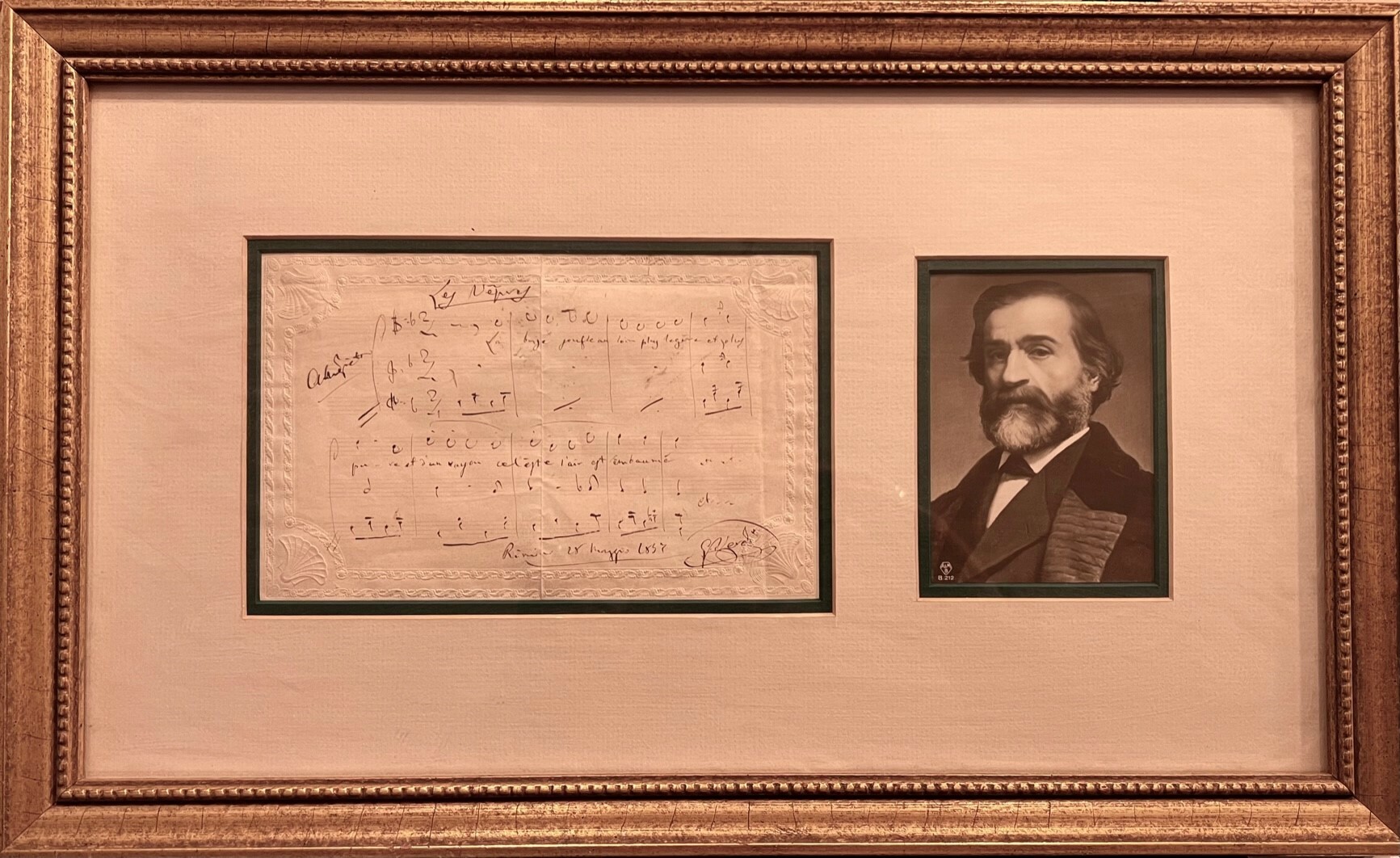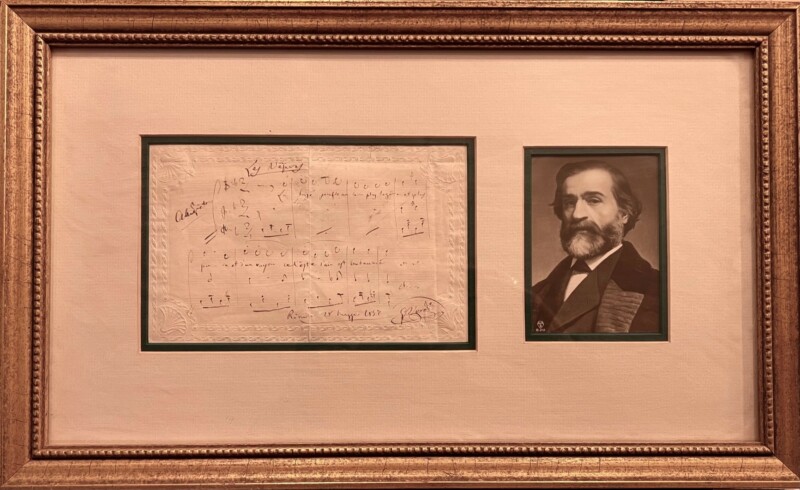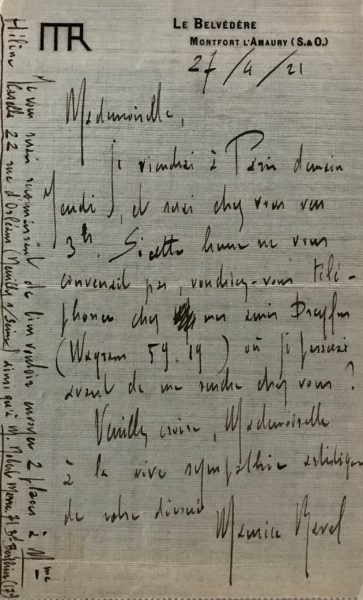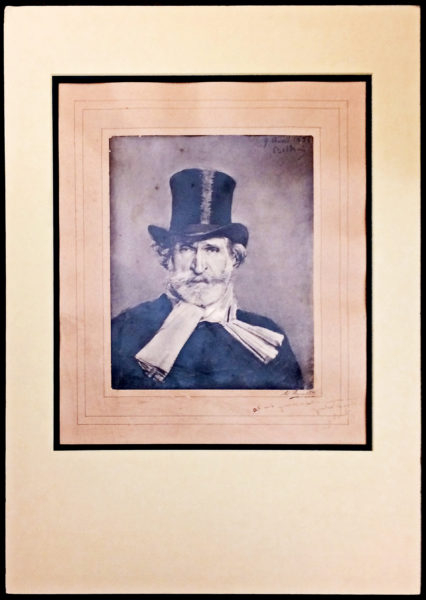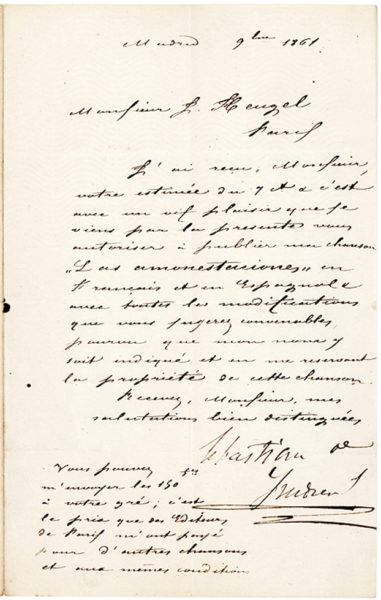VERDI, GIUSEPPE. (1813-1901). Italian opera composer. AMusQS. (“G. Verdi”). 1p. Oblong 8vo. Rimini, May 28, 1857. Nine triple measures with the lyrics in French written on an elaborately blind-embossed sheet from Henri’s aria, “La brise souffle au loin,” from Act V of Les vêpres siciliennes. Verdi has written “Les Vêpres” and “Allegretto” at the top of the page and signed and dated it at the bottom.
Following the phenomenal success of his Nabucco in 1842 and I Lombardi the following year, Verdi was heralded as Italy’s greatest opera composer whose popularity continued to grow after Il Trovatore, La Traviata and Aida. In 1852, “with Il Trovatore still on the drawing board and La Traviata possibly not even thought of,” Verdi entered into a contract with the Paris Opéra for a new grand opera, (The Operas of Verdi, Budden). “In opting for the grandest possible scale, Verdi was running against the current of fashion. His reason for so doing was partly no doubt the desire to measure himself against the unbeatable champion, Meyerbeer… [Also] he was no longer content to capitalize on his assets as he had sometimes done in the mid-1840s. He wanted new horizons such as only vintage grand opera with its infinite variety of forms and scenic devices could offer,” (ibid.).
However, Verdi was hampered from moving forward with Les vêpres siciliennes by delays and revisions to the libretto, an adaptation of Eugène Scribe and Charles Duveyrier’s libretto for Gaetano Donizetti’s 1839 opera Le duc d’Albe. Ultimately, Verdi spent nearly two years in Paris working on the opera which finally premiered in June 1855. Although it was favorably received, the opera largely disappeared from the repertoire after a brief 1863 Paris revival. Telling the story of the bloody 1282 revolt of Sicilian rebels against French King Charles I of Anjou which saw the slaughter of thousands of Sicily’s French inhabitants, Verdi was unable to stage the work in Italy and, instead, attempted an adaptation, set in Portugal, entitled Giovanna de Guzman. Finally, in 1861 he staged an Italian translation, I vespri siciliani, in a newly-unified Italy.
Our lovely quotation is from the Act V tenor aria, “La brise souffle au loin,” sung by the young Sicilian Henri upon his arrival at the gardens of Montfort’s palace and is “a jeweled miniature in the manner of Meyerbeer and a tone-poem evoking the cool evening breeze with its scent of orange blossom,” (ibid.).
Penned in in the northern Italian city of Rimini where, on August 1857, Verdi inaugurated the newly constructed Teatro Nuovo Comunale (Municipal Theatre Vittorio Emanuele II, currently known as the Amintore Galli Theatre) with the premiere of his opera Aroldo, an adaptation of his 1850 opera Stiffelio.
One light vertical fold and framed with a portrait of Verdi. Not examined out of the frame.

